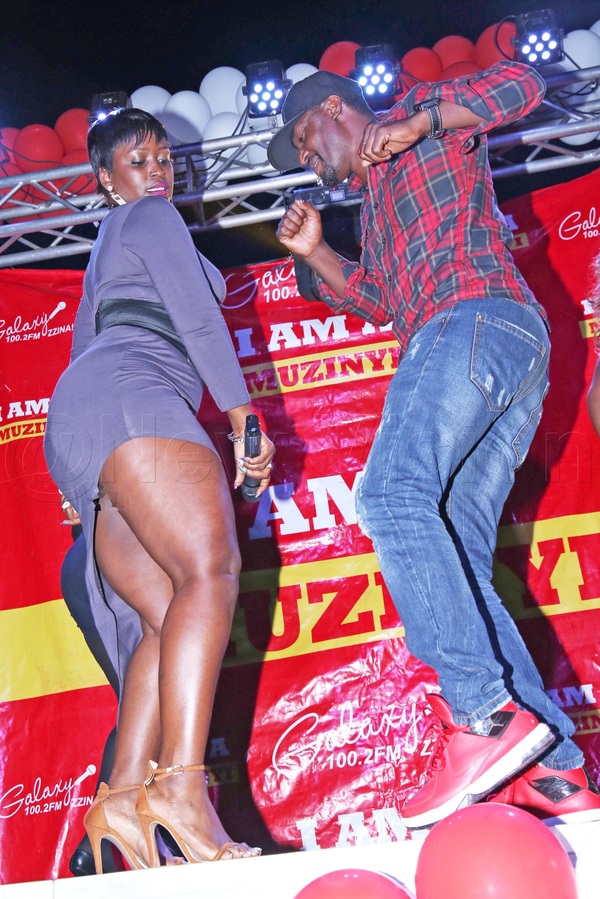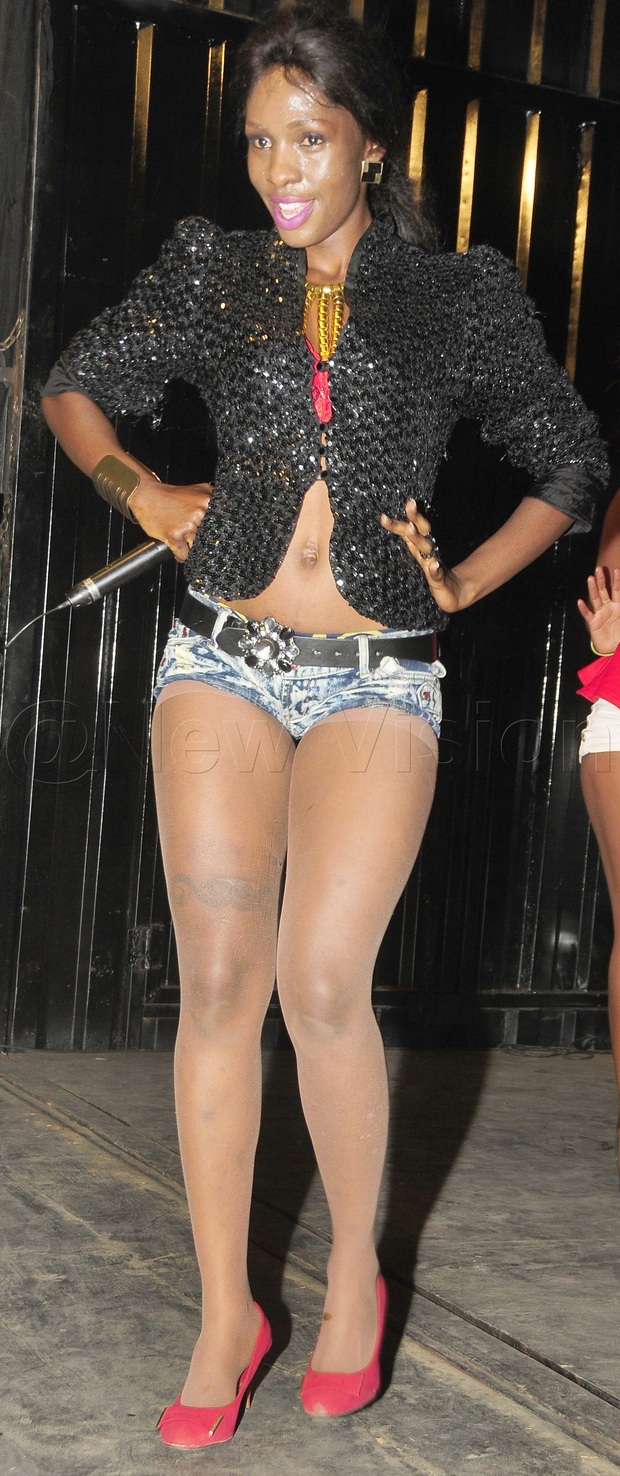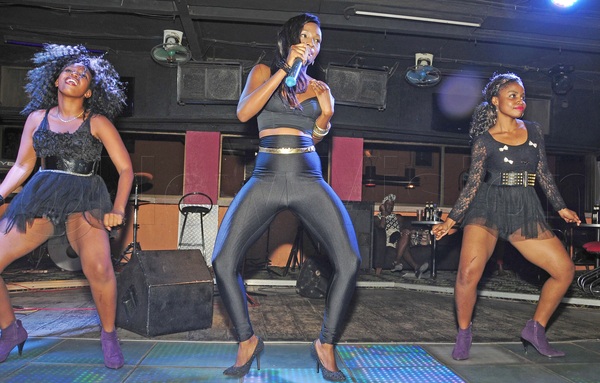Moralists raise eyebrows over increasingly sexualised music videos
Many Ugandan music videos contain substantial proportions of sexual content, which moralists say corrupts young people and should be checked.
MUSIC|PORNOGRAPHY|ARTS AND CULTURE|SOCIETY
In the music industry, sex sells. When an artiste is performing on stage or for their music video, they and their backup dancers will dress in skin tight crop tops and provocative lingerie, engaging in objectifying dance moves, sexual gestures, poses, and facial expressions. On occasion, they'll have bare-chested chiseled musclemen.
Many trending Ugandan music videos from established artistes such as Winnie Nwagi, Iryn Namubiru, Fik Fameica, Cindy Sanyu, John Blaq, Spice Diana, Bebe Cool, Sheeba and several upcoming musicians, contain substantial proportions of sexual content.
For reference, check out live performance video clips of Cindy Sanyu or check out videos such as Timaya by newcomer Prince Omar. For You by Winne Nwagi, Pomini by Ziza Bafana and Sitoma by Spice Diana, among others, are also heavily sexualised.


Afrobeat and dancehall singer Cindy Sanyu takes issue with this criticism of her videos being overly sexualised."The notion that contemporary music videos are sexually corrupting our young people is a little far-fetched. If anyone feels my music video or any other musician's video is way too sexual and indelicate, it is just as simple as getting the remote and turning off the television."
She adds: "It is entertainment and its different strokes for different folks. People forget they have a right not to watch. Nobody is tied to a screen. If you and your folks are being badly influenced by the music videos, do not watch. Period."
"The men who hold sway in the music video making business and who write most of the video scripts, always rationalise that sexual imagery is vital if a video is to sell or if it is to go viral on social media sites, which are another great marketing platform," Joseph Batte, a music critic, points out.
Song lyrics have also gotten a tad sexual. The subtle and veiled sexual references and metaphors in songs such as Go Down Low, Ice Cream, Ekitone Nkwatako and Farmer by Sheebah; and Wire Wire by Bebe Cool, among others, speaks to that point. The lyrical sexual innuendos do not, however, cause as much a palaver as the videos do.
It has become the game, far different from the days of the likes of Paul Kafeero, Geoffrey Oryema and Philly Bomgole Lutaya. This new direction of music art illustration is mainly influenced by what many see among western artistes in countries like the US, the world's Mecca of entertainment.
And through the years, an increasingly liberalised and sexualised society has acted as an enabler of sexualised content in music videos.
"Currently in Uganda, 45-60% of music videos come with some vestige of sexuality. Artistes inclined to sexual imagery in their videos have also been galvanised by a seemingly ineffectual anti-pornography law, which prohibit the exposing of body parts deemed sexual or sexually exciting," Andrew Kityo, a music critic, says.
He adds: "The partiality of the media and artistes' fans regarding steamy videos; and lessened pressure from firebrand moralists such as Father Simon Lokodo and Pastor Martin Ssempa, mean that artistes have more or less become a law unto themselves as regards this issue."
Uganda's anti-pornography law was passed by the Ugandan Parliament in 2014. And speaking of legislation, the only Ugandan musician to ever face litigation for a raunchy music video was Jemimah Kansiime, also known as Panadol Wa Basajja. Her infamous music video for the song Ensolo Yange was banned in 2015.
"Some of the videos are outright debauchery. I am not partial to media that commodifies female bodies and spoils children. I Corinthians 15:13 sums it up well: 'Evil communications corrupt good manners'. Need I say more? Children and teenagers imitate what they see and as you know, the lockdown has been a time of TV binge-watching and unlimited social media usage," Mbale-based evangelist Gideon Wananda, says.

Baker Nasoma, a retired banker, farmer and music enthusiast, says the leeway given to today's musicians putting out music videos with overt depictions of sexuality, needs to be checked.
" Nobody is disputing that the videos are entertainment, but if they are going to influence the morals of the young, they ought to be regulated with some tough legislation as they did in Tanzania and Kenya when they banned the 2016 Zigo video by Diamond Platinumz and 2015's Nishike video by Sauti Sol. A video does not have to be inappropriate and mortifying to sell."
"If you are not part of the solution, you are part of the problem. I am not the type to tolerate my children being exposed to the sexualised content, so I would join Father Lokodo or Pastor Ssempa with haste any day if they start any campaigns against this depravity," Nzoma says.
More recently, Winnie Nwagi and her management team were compelled to apologise to the Parliament's anti-pornography committee after a video emerged of her and her back up dancers engaging students at St Mary's College Kisubi in rub-a-dub dances.
John Kasajja, a book publisher, says there is need to place parental advisory warning labels or strap lines at the bottom of TV screens, when sexually explicit videos are playing on TV.
"Music videos with eroticised dances need to have warnings on them. Another unfortunate bit about them is that they reinforce negative sexual stereotypes about women and men," he says.